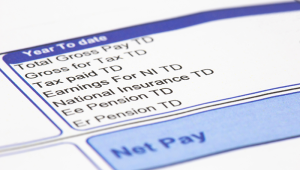Implementing Prime Minister David Cameron's pledge for seven-day-a-week GP access demands a fresh approach. Easy wins in the NHS are over.
There is no doubt that access to NHS GPs is a problem. Headlines about two or even three week waits for appointments have hit almost every national newspaper. Data from the national patient survey backs up these concerns, showing that satisfaction has declined for waits, telephone access and practice opening hours.
So why would David Cameron's pledge to invest £400m over four years into seven day, 8am to 8pm access to general practice be anything other than good news?
Unfortunately, there are three good reasons why.
The first is the phenomenon economists call ‘supply induced demand’.
Research has shown that 12-16% of people using walk-in and urgent care centres, the last major initiatives to improve access, would not have gone elsewhere at all if that service hadn't been available. They are essentially extra patients. It makes sense: the easier we make it to access services the more people come.
The problem is that those new patients often have minor self-limiting ailments that typically get better on their own.
In addition, 20-30% of those seen in these services experience ‘induced utilisation’. They are referred on to another provider who they could have accessed anyway – either their own GP or A&E – so they effectively have an additional contact with the health service.
The second issue is workforce.
Both main political parties have promised to train more GPs – which is great news. But after years of declining incomes, and a constant trickle of bad press coverage, fewer graduates are choosing general practice. For the first time in years, some of England's national GP training places remain un-filled.
Meanwhile, older GPs are reporting that they are more likely to retire early. Those in mid-career have been given new roles by recent reforms in overseeing one another and other parts of the NHS: as clinical commissioners, Care Quality Commission inspectors, appraisers and more.
So the likely result of this policy will be to direct a higher proportion of a closely constrained workforce towards immediate access for short-term health problems. That is all too likely to mean leaving fewer GPs left to provide good care for the most difficult cases facing the NHS: people with long-term complex problems like diabetes, chronic lung disease or dementia – or often, several of these.
This issue is closely linked to the final reason to mute the applause for this policy – opportunity cost.
David Cameron promised £100m to invest in the set-up costs of seven-day general practice, but the running costs will have to come from somewhere. The evaluation of the first round of access pilots is only just getting under way. We do not yet know whether these services offer value for money, especially compared with investment in other areas of health care.
So there are grounds for scepticism about this solution. But the problem of GP access is real: so what do we propose?
The Nuffield Trust publication Meeting need or fuelling unnecessary demand sets out some possible answers. We need services that are intelligently and consciously designed to optimise access to increasingly scarce professionals.
That means incentives which encourage clinicians to completely address each patient’s needs, not pass the parcel by referring them on to somewhere else. It also means intelligent triage systems that make sure people's first contact is with a health professional who can effectively meet their needs.
Next, we need to maximise the use of technologies that can substitute for face-to-face contact. E-consultations for simple problems such as hay fever have been shown to be effective and time saving. Web resources can help patients with minor ailments like colds, or with long-term conditions like hypertension, to care for themselves.
Making full use of different professions, who may be less scarce and more cost-effective than GPs, will also be important. Extended access should not just be about GPs. Pharmacists have a role to play, as do opticians and health and wellness advisers. There will be interesting lessons from the current access pilot schemes. We need the time to learn them.
Finally, we need to accept that no service with finite resources can do everything we want, and that trade-offs are inevitable. GPs can certainly work better and faster than they do now. But if we push that capacity to improve towards easier access, we risk slowing progress on providing a stable professional link and co-ordinating hospital and social care – things evidence suggests many patients actually value more.
It’s election season: politicians are under great pressure to promise that solutions are just a vote away. But with the NHS under intense pressure, the easy wins are over. Progress now means actually delivering on the elusive goal of doing more for less. Doing the same for longer each day will not necessarily help.
Dr Rebecca Rosen is a senior fellow in health policy at the Nuffield Trust and a general practitioner in Greenwich. She is a clinical commissioner in Greenwich Clinical Commissioning Group where her lead areas are long-term conditions and quality.











